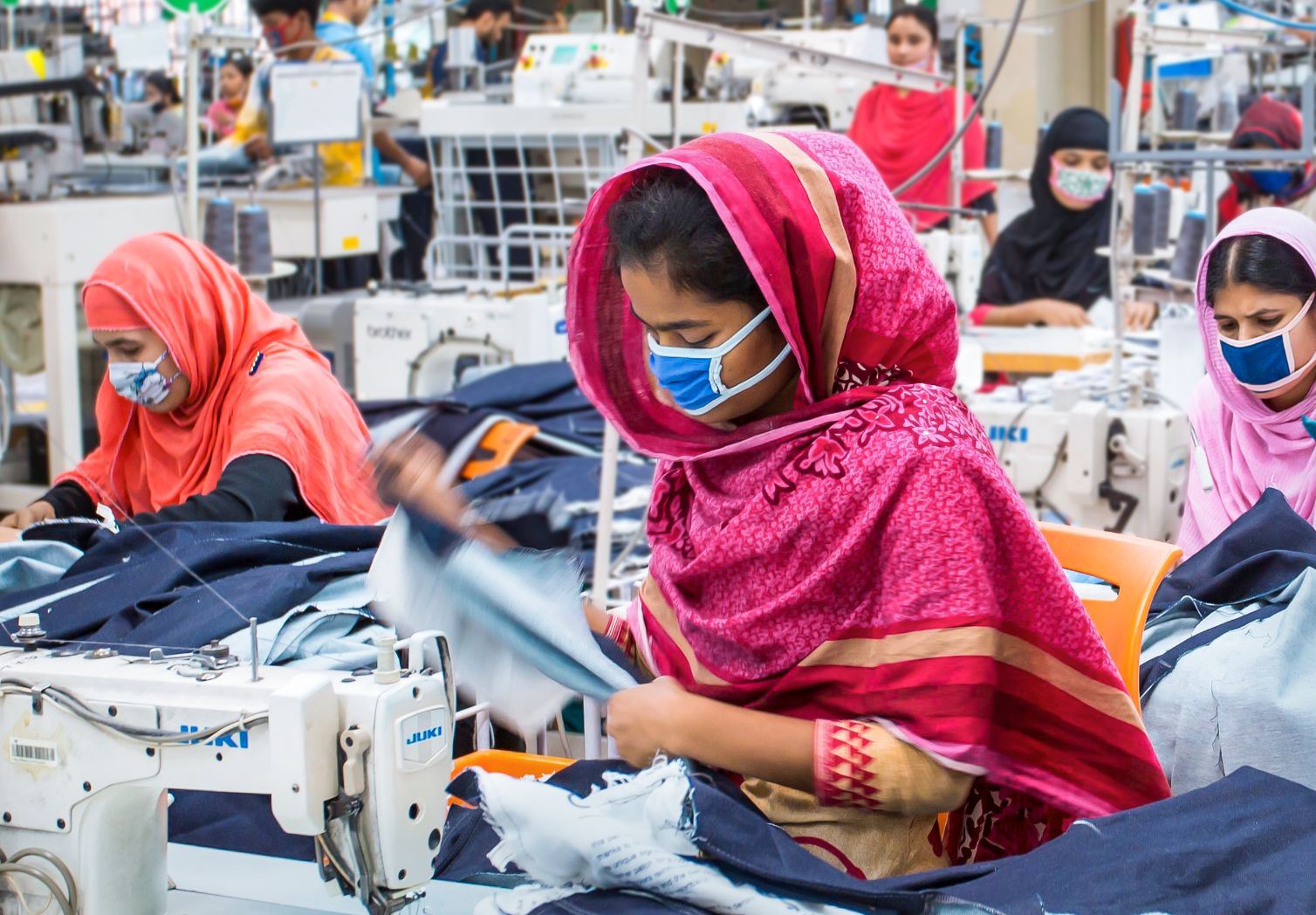It is not only women who meet at the ‘women’s cafés’ found at many industrial sites in Bangladesh. Factory workers who want to advocate more strongly for their own rights can network and obtain information there. The cafés are part of the Sustainability in the Textile and Leather Sector (STILE) project, which GIZ is implementing on behalf of BMZ to enhance social and environmental standards along supply chains, specifically where the need is greatest – in factories and among workers in the manufacturing countries.
Since January 2023, the Act on Corporate Due Diligence Obligations in Supply Chains has given German companies a legal framework for complying with environmental and social standards when purchasing from and cooperating with other businesses. But long before the legal framework existed, GIZ worked for various clients on projects to improve people’s living conditions at different points along supply chains. We devise dialogue programmes for key sectors in Germany, offer training for potential partner companies abroad, and support structures already in place at local level – such as the women’s cafés in Bangladesh.
Hammering out solutions in discussion
Many of the adverse impacts for people at local level can be avoided if the companies awarding contracts factor in consequences for the entire supply chain from the outset. When the German Government adopted the National Action Plan on Business and Human Rights, the German Federal Ministry of Labour and Social Affairs commissioned GIZ to work with companies in the key branches of industry in Germany to identify major challenges and potential. ‘What emerged were dialogues within the individual branches,’ recounts Harald Küppers, who manages the project for GIZ. Such dialogues pursue a multi-stakeholder approach, with private businesses, industry associations, trade unions and civil society around the table. Together they devise ways of integrating the National Action Plan into the everyday operations of companies. This includes drawing up a human rights policy, reporting regularly on human rights in the supply chains, and firmly establishing grievance mechanisms. ‘Our first dialogues were with the automotive industry. Not only because it is a key sector, but because major market leaders had actively asked for our support,’ Küppers explains.


